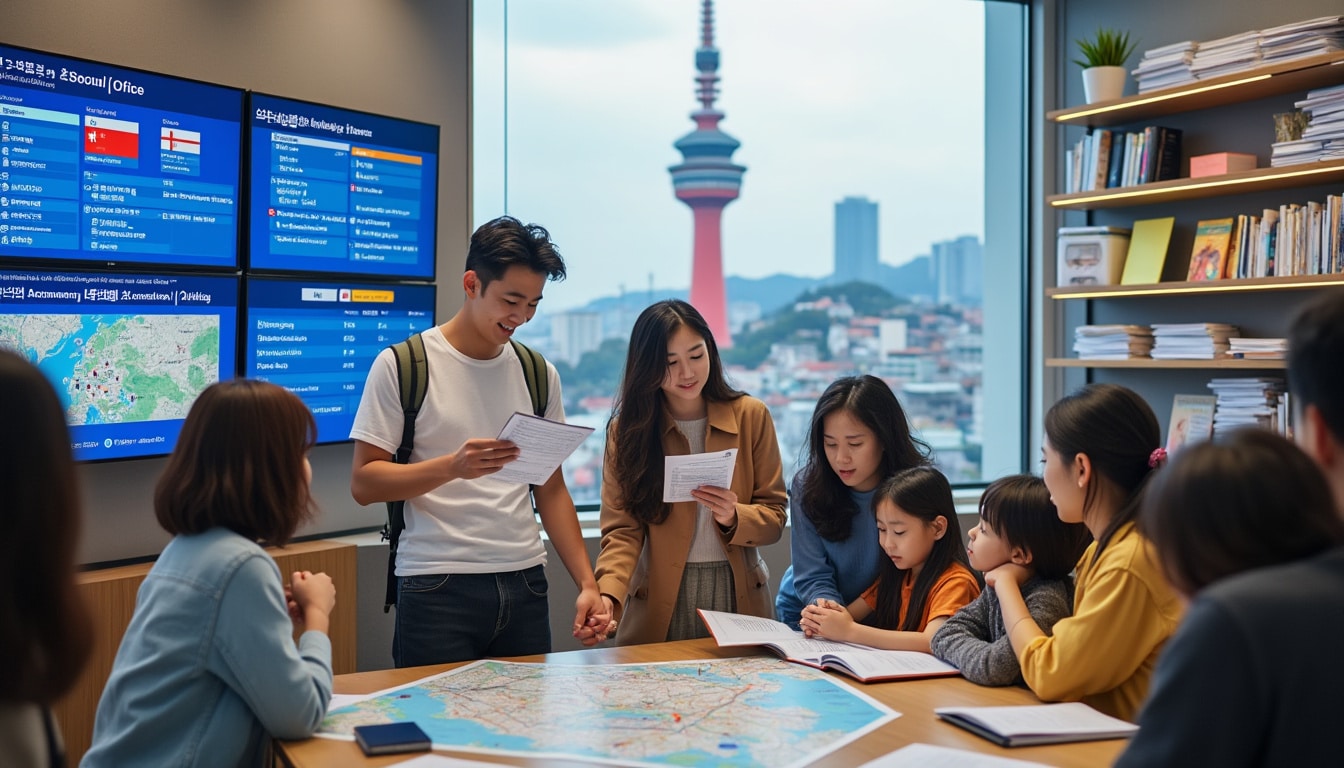Relocating to Seoul, the bustling heart of South Korea, is a dream for many, entwined with visions of rich cultural experiences, modern innovations, and vibrant city life. However, before embarking on this transformative journey, understanding the legal and logistical intricacies is essential. Navigating the ins and outs of visas, work permits, and residency requirements can be daunting but is necessary to ensure a smooth transition. Below, we delve into the crucial aspects of moving to Seoul legally, offering guidance on visas, residency, and practical tips to streamline your move.
Visa Essentials for a Legal Move to Seoul
To legally move to Seoul, securing the appropriate visa is the first and most critical step. The visa you choose depends on your purpose of stay—be it work, study, or experiencing life as a digital nomad. Understanding this can make or break your transition to South Korea, as each visa has its own set of requirements and benefits.
For those looking to work, the E-series work visas are pivotal. Each type caters to different employment scenarios, from teaching English to specialized professional roles. Ensuring you have a job offer from a South Korean employer is usually necessary to obtain these visas. Organizations like VisaConsult and KoreaVisaExperts provide detailed guidance on processing these applications.
The D-10 Job Seeker visa is an excellent option for those moving without a job. This visa allows you to enter Korea and search for employment opportunities for a period of six months. A unique requirement includes having your previous employer listed in the Fortune 500. Hence, candidates with significant work experience benefit greatly under this provision, making it ideal for experienced professionals looking to establish their careers in Korea.
- 📝 E-2 Visa: For English teachers.
- 💻 E-7 Visa: For specialized skilled professionals.
- 🔍 D-10 Visa: For job seekers with experience.
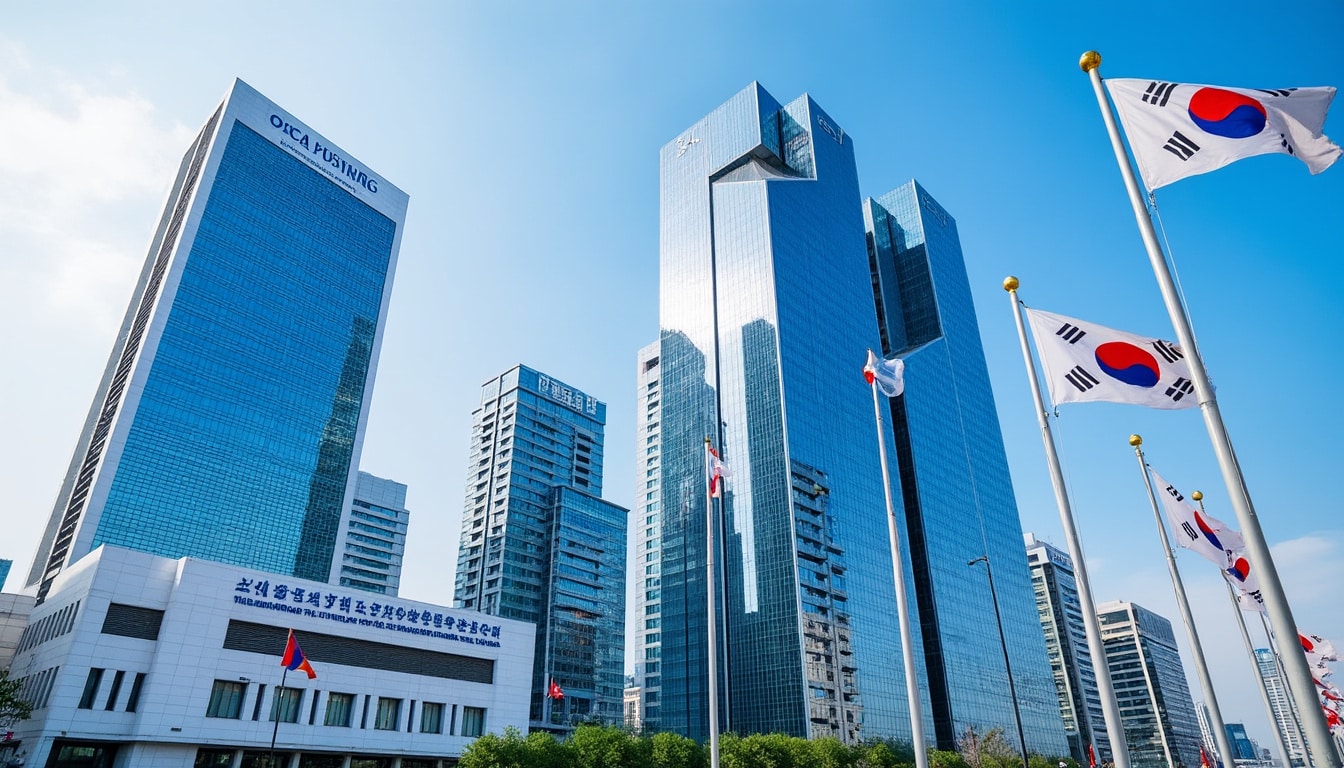
Other options include the F-2 residence visa, suitable for individuals aiming for a long-term stay, offering benefits like unrestricted employment rights. For expatriates married to Korean nationals, the F-6 Visa allows them not only to stay but also provides a path to citizenship. This visa encourages long-term settlement and integration into Korean society, a welcome option for those seeking to fully immerse themselves in the Korean lifestyle.
| Visa Type | Duration | Key Requirement | Emoji |
|---|---|---|---|
| E-2 | 1 year (renewable) | Contract with Korean educational institution | 👩🏫 |
| D-10 | 6 months | Previous employment with Fortune 500 | 🔍 |
| F-6 | 3 years | Marriage to a Korean citizen | ❤️ |
Streamlining the Visa Application Process
Ensuring a successful visa application involves thorough preparation. Gather all necessary documentation, which typically includes proof of employment (or intention to employ, such as contracts), valid identification, and financial stability. Utilizing services from SeoulExpatSupport or SeoulVisaSolutions can further simplify this process, helping to navigate the language barrier and bureaucratic complexity.
Residency and Navigating Life in Seoul
Once the visa is secured, the next step is obtaining an Alien Registration Card (ARC), mandatory for stays exceeding 90 days. This card functions similarly to a residence permit, essential for opening bank accounts, signing leases, or securing mobile phone contracts. Registering for the ARC must be completed within 90 days of arrival, typically at a local immigration office. Failing to acquire an ARC can lead to fines or complications when exiting and re-entering Korea.
Understanding the cost of living is equally vital. Seoul, while vibrant and culturally rich, can be expensive. However, compared to other major cities like Tokyo, it is considered more affordable. Estimating expenses will help you budget aptly, ensuring financial stability without compromising on the quality of life. Services like RelocationSeoul and SeoulLegalAdvisors offer cost estimates and assistance in finding housing and setting up essential services.
- 🏡 Monthly rent (1-bedroom apartment in city center): Approx 1,500,000 KRW
- 🚇 Public transportation pass: 60,000 KRW
- 🍲 Typical meal at a restaurant: 10,000 – 16,000 KRW
For residency beyond cultural tours, blending into the local lifestyle involves cultural adaptation. Experiencing Korea’s duality of ultra-modernity and tradition is a thrilling chance to explore famed attractions like Gyeongbokgung Palace or indulge in culinary delights at a K-BBQ.
Embracing Korean Culture and Networking
The importance of embracing Korean culture cannot be overstated. Engaging in cultural experiences, like mastering the Korean language or participating in festivals, enriches the expatriate experience and eases the integration process. Networking, both socially and professionally, opens doors to new opportunities and offers a support system far from home.
Employment and Entrepreneurial Opportunities in Seoul
For those seeking employment, Seoul’s dynamic job market offers a myriad of opportunities, particularly in tech, education, and trade. The city’s robust economy is known for fostering both domestic and international talent, making it a magnet for skilled workers. Acquiring a work visa involves securing a job before arrival, which might require networking and proactive job searching while still in your home country.
Beyond employment, Seoul presents lucrative prospects for entrepreneurs. Starting a business requires navigating complex business laws and understanding cultural nuances. Entrepreneurs often start with a D-8 Corporate Investor Visa for foreign-invested companies or technology startups, often benefiting from government incentives like tax breaks or cash grants.
- 💼 D-8 Visa: Corporate investment and entrepreneur visa.
- 🖥️ Access to a tech-savvy market that thrives on innovation.
Critical industries include information technology, fashion, and automotive sectors, where demand is soaring, epitomized by Korea’s iconic brands like Samsung, Hyundai, and LG. These industries contribute significantly to the job market for foreigners.
Challenges and Tips for a Smooth Transition
While the journey to Seoul can be profoundly rewarding, it’s not without its challenges. Overcoming the language barrier, adapting to cultural differences, and navigating the competitive job market require resilience. For non-Korean speakers, relying on translation apps or hiring language tutors can mitigate communication issues. The value of immersing oneself in the local culture is immeasurable, leading to a more enriching and successful experience.
Additionally, understanding cultural practices in the workplace is crucial. For instance, Korea’s hierarchical business culture places emphasis on seniority and respect, which can be a stark contrast to Western practices. Overcoming these nuances with mindfulness and adaptability will enhance professional and personal relationships.
- 📱 Utilize language learning apps to enhance communication.
- 🤝 Attend local events and networking groups to build connections.
- 📅 Patience and persistence are key to adapting successfully.
Conquering the Social Scene and Everyday Living
Seoul’s social scene is both vibrant and diverse, offering everything from bustling street markets to upscale dining and nightlife. This diversity ensures there’s always something happening, whether that’s enjoying hansik (Korean traditional cuisine) or watching K-pop performances. Embracing these experiences is part of what makes living in Seoul unique and fulfilling.
FAQ
- How long can an American stay in Korea without a visa? Up to 90 days under the South Korea ETA.
- What is the best visa for long-term stay? The F-2 residence visa is suitable for long-term residence.
- Can foreigners own businesses in Korea? Yes, with proper legalization and investment, foreigners can own businesses.
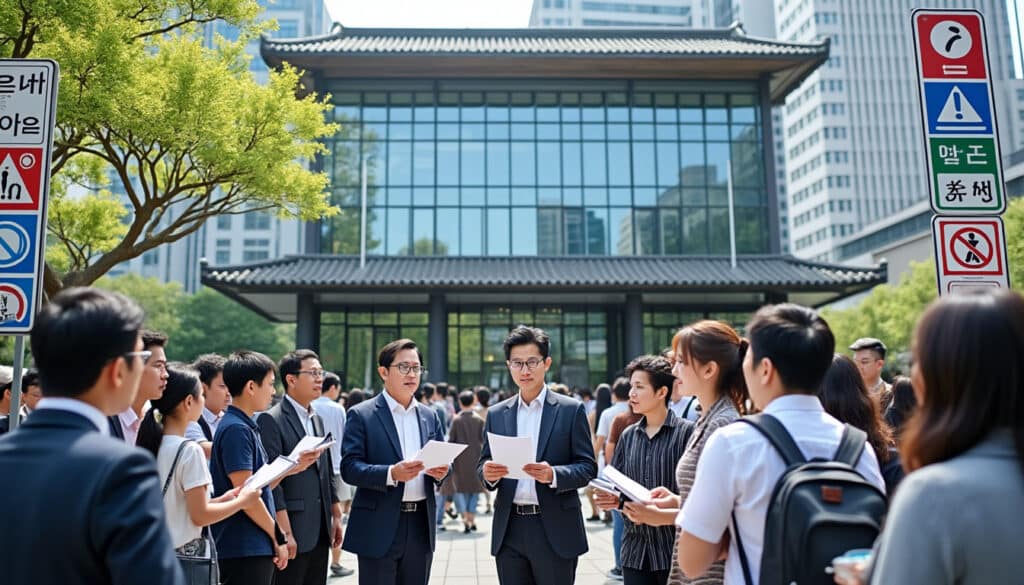
Legal Information and Rules in Seoul
Seoul, a bustling metropolis and a hub of cultural and business activities, is steeped in an intricate web of legal systems. Understanding the legal landscape here is crucial for both residents and visitors alike, as it affects everything from everyday…
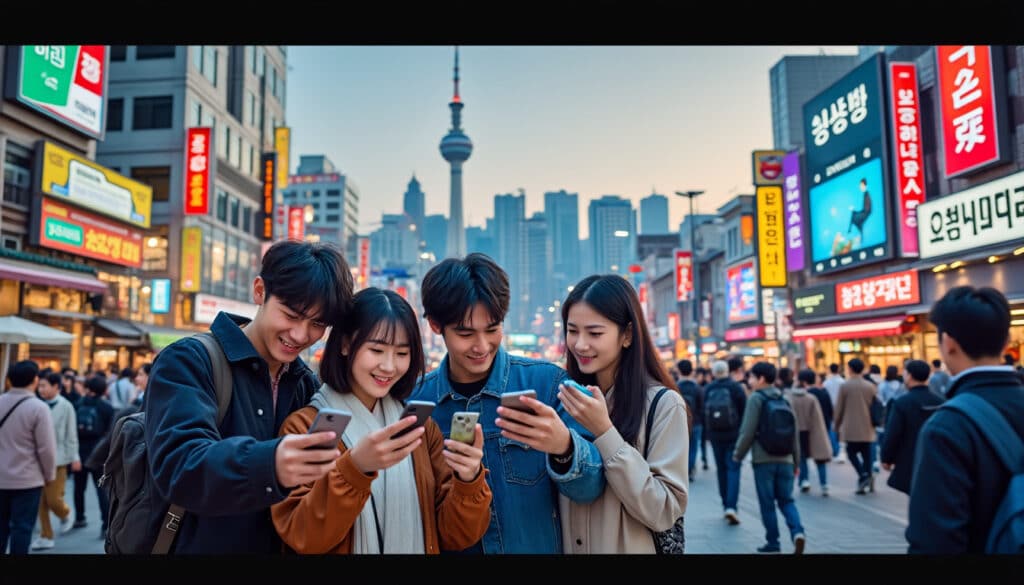
Calling and communication rules in Seoul
As Seoul continues to thrive as a bustling metropolis that harmonizes tradition with the adrenaline rush of modernity, understanding its unique communication nuances becomes essential for every traveler and expatriate. The intricate social protocols and communication etiquettes prevalent in Seoul…
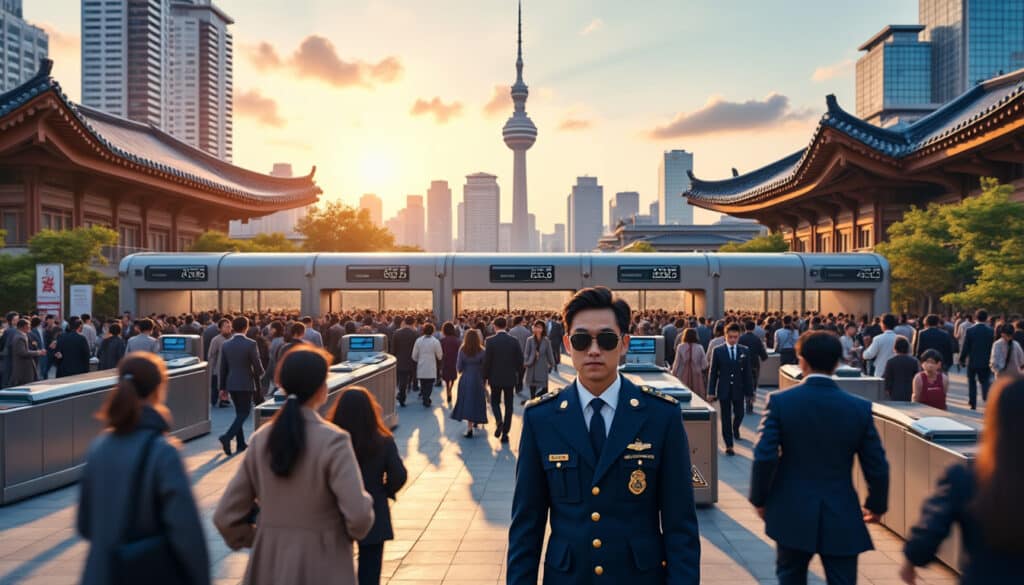
Criminal status and entry to Seoul
Exploring the prospects of traveling to Seoul can be an exhilarating journey into the heart of South Korea, a vibrant metropolis teeming with culture, innovation, and unforgettable experiences. However, for those who have a criminal record, the complexities of entering…
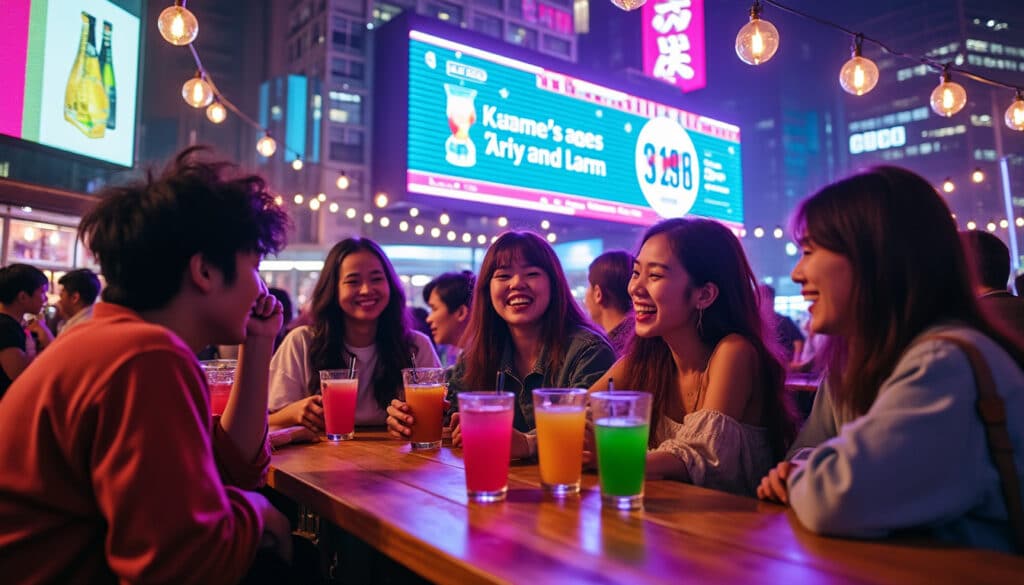
Drinking and age restrictions in Seoul
In the vibrant landscape of Seoul, where neon signs illuminate bustling streets and the aroma of street food fills the air, understanding the intricacies of age-related restrictions becomes crucial, especially for those looking to partake in the city’s dynamic nightlife.…
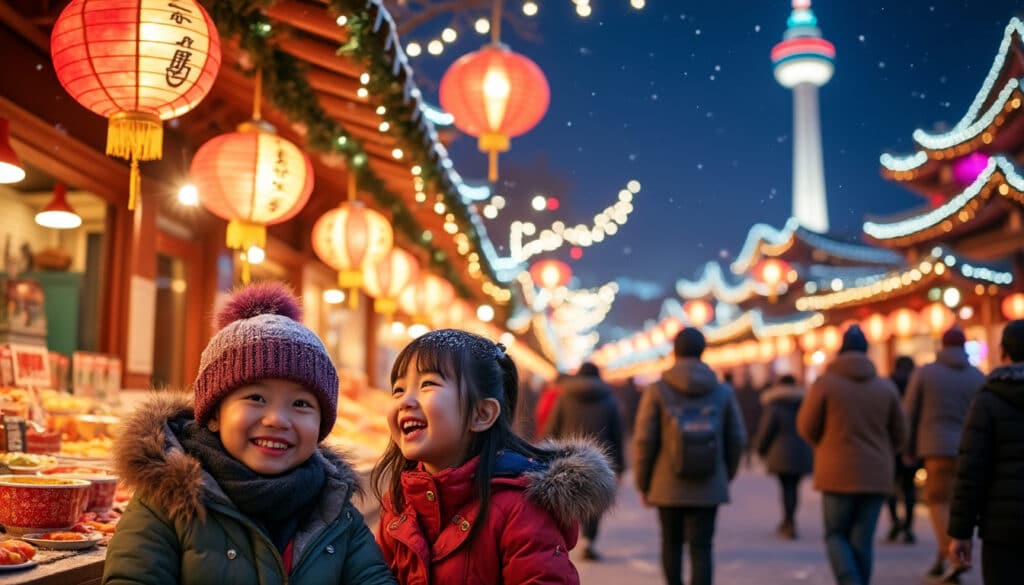
Seoul, the vibrant heartbeat of South Korea, orchestrates a symphony of cultural and historic charm throughout the year, drawing visitors from all corners of the globe. Known for its dynamic blend of tradition and modernity, Seoul’s holiday calendar is a…

Smoking, drugs, and red light laws in Seoul
Seoul, a city where tradition meets modernity, is not only vibrant and diverse but also strictly governed by a set of comprehensive laws, particularly when it comes to smoking, drugs, and red light districts. For those unfamiliar with South Korea’s…
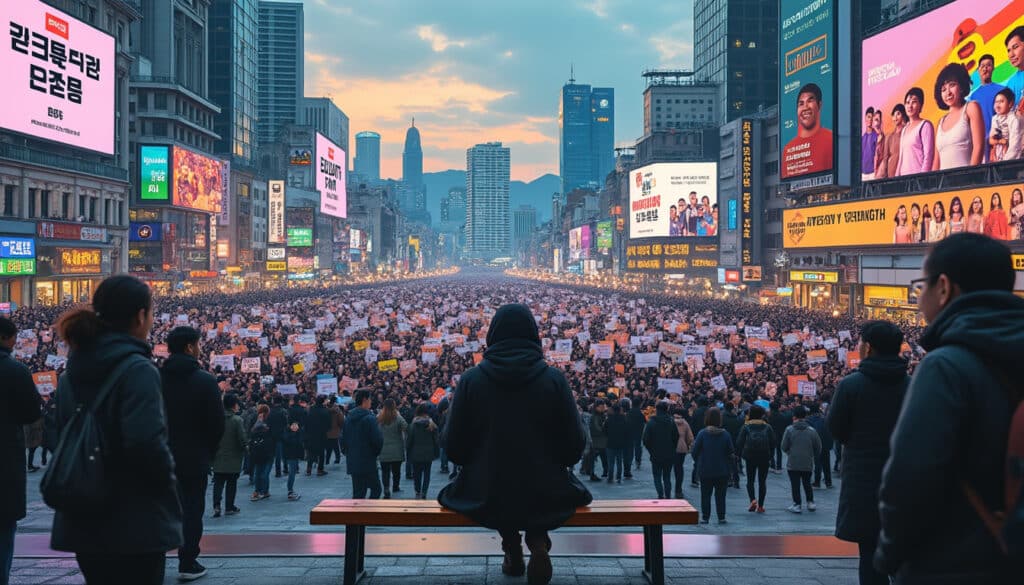
Social and discrimination issues in Seoul
The bustling metropolis of Seoul, with its towering skyscrapers and vibrant cultural scenes, is not just a hub of technology and fashion. It is also a microcosm of the broader social and discrimination issues that permeate South Korean society. From…

